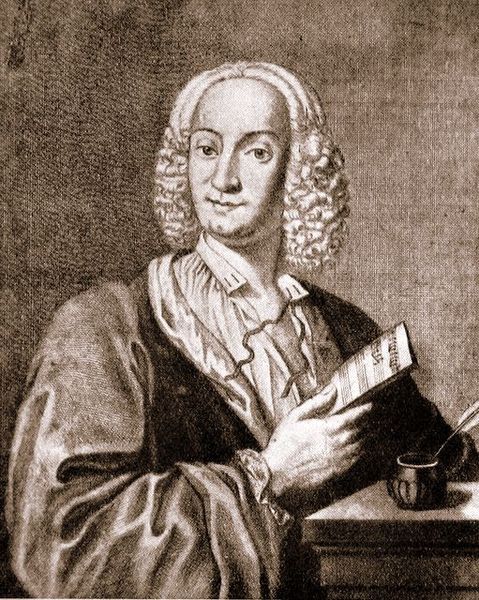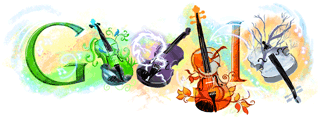Antonio Vivaldi
Antonio Lucio Vivaldi was born in Venice on March 4, 1678, and was taught by his father to play the violin at an early age. Intending to become a priest, Vivaldi first took holy orders in 1773, but left the priesthood after two years due to a respiratory illness. At twenty seven years of age he was employed as teacher and Maestro di violino (master of violin) at the Conservatory of The Pietà, a Venetian hospice for orphaned girls, where he first began composing music.
Although in a period of economic and military decline, Venice remained a prestigious cultural center, renowned especially for both music and painting. This was a period of enlightenment for Europe, and the time when Venice began to develop its romantic reputation and mystique, in part to the memoirs of Casanova. The city was also experiencing a theatrical renaissance, and is believed to be the prelude for vaudeville, improvisation and even the modern circus. It is believed that Vivaldi frequented the theater often, and it may have been part of his musical influence and inspiration.
It was during these years that Vivaldi wrote much of his music, including many operas and concertos. In 1705, the first collection of his works was published, and his work began to gain appreciation and esteem abroad. At that time in Venice, opera was the most profitable popular musical entertainment, and where Vivaldi first gained his reputation and success as a composer.
He later moved to Mantua, and then Rome, and it was during this period that he composed what is likely his most well known classical work, The Four Seasons, four violin concertos depicting natural scenes in music. During the height of his career, Vivaldi received commissions from European nobles and royalty. The wedding cantata Gloria e Imeneo was written for the marriage of Louis XV, while Opus 9, La Cetra, was dedicated to Emperor Charles VI (Holy Roman Emperor, King of Bohemia, Sovereign of the Habsburg Empire, Archduke of Austria etc, etc) in 1728, who Knighted him for doing so.
Vivaldi’s life, like those of many composers of the time, ended in financial difficulties. His compositions no longer held the high esteem they once did, and Vivaldi, in response, chose to sell off sizable numbers of his manuscripts at paltry prices to finance a migration home to Vienna. Vivaldi died a pauper on July 28, 1741.
Vivaldi’s “Spring” from The Four Seasons is amongst the most popular wedding ceremony compositions played today, not only by instrumentalists, but perhaps – aside from a few others (Pachelbel’s Canon in D, Mendelssohn’s A Midsummer Night’s Dream and Bach’s Minuet in G to name a few) – is likely one of the few classical pieces played by the wedding DJ as well.
On March 4, 2010, Google honored Antonio Vivaldi’s 332nd birthday with a custom graphic, depicting four violins each representing the four seasons, in homage to his most acclaimed concertos of the same name. It was internet reflecting art that inspired me to write this blog in tribute to this great composer and musician, whose legacy lives on in his beautiful music.
-Craig



AWESOME!!!